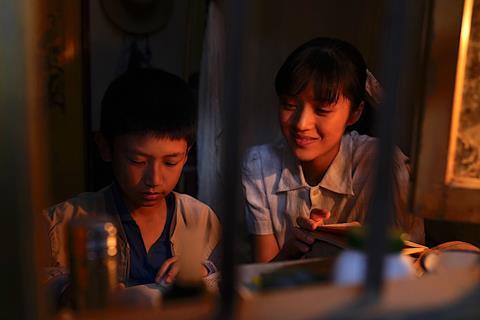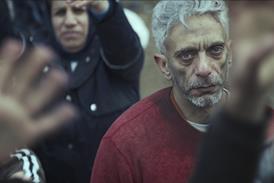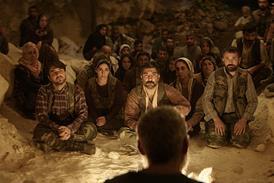Berlin Competition title is an intimate epic of the PRC’s heartland

Dir/scr. Huo Meng. China. 2025. 132mins
Huo Meng’s intimate epic Living the Land provides an immersive portrait of early 1990s rural China from the perspective of a young boy who is just becoming aware of the challenges facing his community. This concern with China’s heartland in an era of unprecedented modernisation was evident in Huo’s debut Crossing the Border – Zhaoguan (2018), which took the form of a road movie. His ambitious and more socially critical follow-up remains rooted in one village where it follows four generations of a family throughout one year.
Deeply poignant yet staunchly unsentimental drama
Shot from spring to winter to capture the changing seasons, Living The Land’s evocatively earthy palette will help this deeply poignant yet staunchly unsentimental drama find its way to art-house audiences. It should travel widely following its Berlin Competition premiere, putting Huo on the map alongside such rising Chinese talents as Wei Shujun, Zhang Dalei and Gu Xiaogang. By eschewing nostalgic warmth in favour of a realist aesthetic and addressing thorny issues associated with rural communities (notably family planning), this sprawling recreation of China’s recent history may hit a chord domestically and in select international arthouse distribution.
In 1991, 10-year-old Xu Chuang (Wang Shang) is being raised by relatives in the countryside while his parents forge a more prosperous future in the migrant mecca of Shenzhen. China may be in the throes of a seismic transformation, but Chuang’s childhood in this close-knit village community is characterised by an adherence to rituals and traditions as the place is almost suspended in time (the Lunar calendar is still used). When not attending school, Chuang helps with the annual harvest, attends weddings and funerals, and witnesses his relatives struggle to supplement their meagre farming income through outmoded endeavours.
Of his extended family, Chuang is closest to his 20-something auntie Xiuying (Zhang Chuwen) who has feelings for village teacher, Guo (Shao Ran). Chuang becomes a go-between for their unconsummated romance, as the near-lovers pass affectionate notes back-and-forth in the boy’s school books. There are also Chuang’s relationships with two cousins: he tries to forge a brotherly dynamic with the similarly aged Laidan (Jiang Yien), while becoming troubled by how the older Jihua (Zhou Haotian), who lives with a learning disability, is routinely derided as an “idiot”.
Taking his cue from family sagas by directors as diverse as Francis Ford Coppola and Edward Yang, Huo opens the carefully paced proceedings with an event that brings everyone together; the funeral of a matriarch. This necessitates the excavation of the remains of the recently deceased’s husband so that the couple can be buried together, followed by an elaborate, performative burial ritual which fleetingly recalls Tian Zhuangzhuang’s parable The Horse Thief (1986). It’s a joyous occasion that celebrates a life well-lived in the face of hardship, and foreshadows the “life is hard” philosophy expressed by various characters as the film symbolically progresses from the lush greenery and vibrant yellows of spring to the unforgiving depths of winter.
Over what proves to be a testing year, Chuang tries to fit into a family unit which dutifully welcomes him never regards him as a true member. As is plainly pointed out, Chuang’s surname means the village is not his true home. Yet this is not the only reason that he is out of place. Played with a sense of compassion and inquisitiveness by gifted child actor Wang, this sensitive pre-teen is hardly wise beyond his years but nonetheless finds himself instinctually at odds with the casual cruelty committed around him. This underscores the contradictions of a community that embodies fundamental virtues yet mistreats the guileless Jihua and subjects a petrified Xiuying to aggressively patriarchal customs on her wedding day – although Huo refrains from casting judgment on such behaviour.
Living the Land is beautifully crafted in a largely observational mode which affords the sense of eavesdropping on village affairs, an impression reinforced by Li Tao’s enveloping sound design. (A haunting electronic score by Wan Jianguo is reserved for the end credits). Huo’s measured editing demonstrates considerable confidence, as the film takes its time to build to a metaphoric final scene that is powerfully pitched between defiance and hopelessness.
Production companies: Floating Light (Foshan) Film and Culture, Shanghai Film Group, Phoenix Legend Films, Bad Rabbit Pictures, Lianray Pictures
International sales: m-appeal, berlinoffice@m-appeal.com
Producer: Zhang Fan
Cinematography: Guo Daming
Production design: Yu Shuyao
Editing: Huo Meng
Music: Wan Jianguo
Main cast: Wang Shang, Zhang Chuwen, Zhang Yanrong, Zhang Caixia, Cao Lingzhi, Zhou Haotian, Jiang Yien, Shao Ran
























